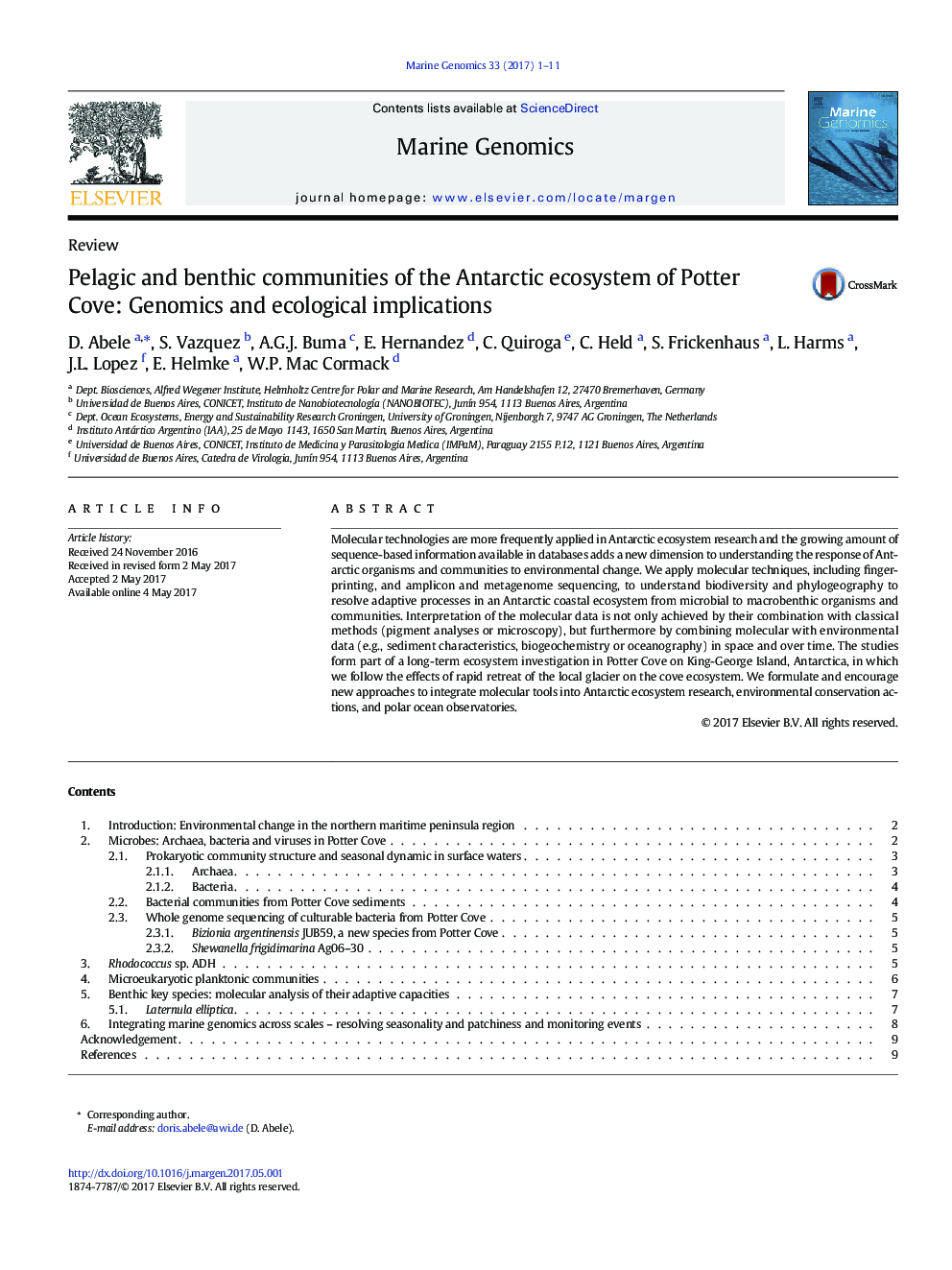| Article ID | Journal | Published Year | Pages | File Type |
|---|---|---|---|---|
| 5518233 | Marine Genomics | 2017 | 11 Pages |
Molecular technologies are more frequently applied in Antarctic ecosystem research and the growing amount of sequence-based information available in databases adds a new dimension to understanding the response of Antarctic organisms and communities to environmental change. We apply molecular techniques, including fingerprinting, and amplicon and metagenome sequencing, to understand biodiversity and phylogeography to resolve adaptive processes in an Antarctic coastal ecosystem from microbial to macrobenthic organisms and communities. Interpretation of the molecular data is not only achieved by their combination with classical methods (pigment analyses or microscopy), but furthermore by combining molecular with environmental data (e.g., sediment characteristics, biogeochemistry or oceanography) in space and over time. The studies form part of a long-term ecosystem investigation in Potter Cove on King-George Island, Antarctica, in which we follow the effects of rapid retreat of the local glacier on the cove ecosystem. We formulate and encourage new approaches to integrate molecular tools into Antarctic ecosystem research, environmental conservation actions, and polar ocean observatories.
